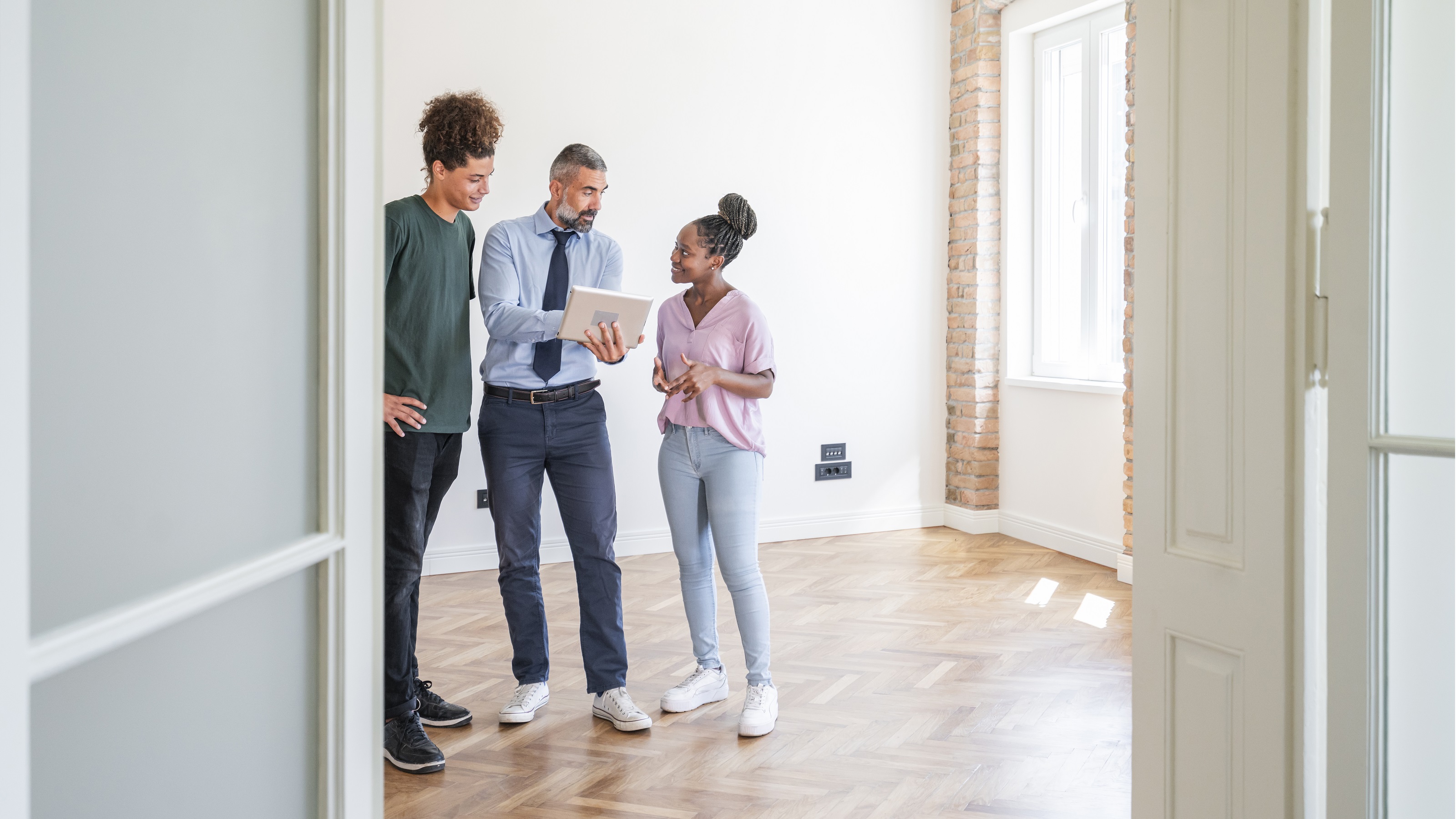13 Practical Strategies for Making Homeownership a Reality
If your dream of homeownership feels out of reach, these expert-recommended tips can bring you closer to realizing your goal.


Profit and prosper with the best of Kiplinger's advice on investing, taxes, retirement, personal finance and much more. Delivered daily. Enter your email in the box and click Sign Me Up.
You are now subscribed
Your newsletter sign-up was successful
Want to add more newsletters?

Delivered daily
Kiplinger Today
Profit and prosper with the best of Kiplinger's advice on investing, taxes, retirement, personal finance and much more delivered daily. Smart money moves start here.

Sent five days a week
Kiplinger A Step Ahead
Get practical help to make better financial decisions in your everyday life, from spending to savings on top deals.

Delivered daily
Kiplinger Closing Bell
Get today's biggest financial and investing headlines delivered to your inbox every day the U.S. stock market is open.

Sent twice a week
Kiplinger Adviser Intel
Financial pros across the country share best practices and fresh tactics to preserve and grow your wealth.

Delivered weekly
Kiplinger Tax Tips
Trim your federal and state tax bills with practical tax-planning and tax-cutting strategies.

Sent twice a week
Kiplinger Retirement Tips
Your twice-a-week guide to planning and enjoying a financially secure and richly rewarding retirement

Sent bimonthly.
Kiplinger Adviser Angle
Insights for advisers, wealth managers and other financial professionals.

Sent twice a week
Kiplinger Investing Weekly
Your twice-a-week roundup of promising stocks, funds, companies and industries you should consider, ones you should avoid, and why.

Sent weekly for six weeks
Kiplinger Invest for Retirement
Your step-by-step six-part series on how to invest for retirement, from devising a successful strategy to exactly which investments to choose.
Decades ago, homeownership was a realistic goal for many people. In recent years, sky-high real estate prices and increased costs of living have made it harder for would-be buyers to envision themselves ever achieving that milestone.
Though the path to homeownership can be difficult in today's economy, it's still possible with the right strategies. Here, members of Kiplinger Advisor Collective recommend practical tips for moving the needle on your goal of owning a home.
Find a fixer-upper in a lower-demand location
“Location, age and condition of the home matter when it comes to price. Find an older home that may need some work in a location not so high in demand. Then, time it to secure a mortgage with a decent rate to lower mortgage costs. Budget for all homeowner costs, such as insurance, property tax, utilities and home services. Sacrifice other areas of life (travel, entertainment) to save money and buy an asset.” — John Bodrozic, HomeZada
From just $107.88 $24.99 for Kiplinger Personal Finance
Become a smarter, better informed investor. Subscribe from just $107.88 $24.99, plus get up to 4 Special Issues

Sign up for Kiplinger’s Free Newsletters
Profit and prosper with the best of expert advice on investing, taxes, retirement, personal finance and more - straight to your e-mail.
Profit and prosper with the best of expert advice - straight to your e-mail.
Consult with a lender
“Talk to a lender first. A loan officer will review your current financial situation to see if you qualify for state down payment assistance programs or home loan programs that require low or no down payments. If you're not quite eligible for a loan now, the loan officer can suggest steps to improve your creditworthiness, for example, by boosting savings and paying down high-interest consumer debt.” — Laura Ostrem, Success Mortgage Partners, Inc.
Avoid waiting for your dream home
“I recommend buying an affordable starter home or fixer-upper rather than waiting for your ‘dream home.’ This way, you can start building equity and gain homeownership experience. Making a smaller initial investment reduces your financial risk if market conditions or your own personal and economic conditions change.” — Hari Prasad Josyula, DowJones
Explore down payment assistance programs
“Most would-be homebuyers don't know that they can get down payment assistance and help with closing costs from a variety of sources. City, county, state and federal programs, as well as nonprofit initiatives, offer $5,000 to $50,000 to first-time and move-up buyers. Help can even come from sellers, as mortgage lenders allow buyers to get a 3% seller credit.” — Lynnette Khalfani-Cox, TheMoneyCoach.net LLC
Focus on improving your financial health
“Start by improving your financial health. Focus on saving for a larger down payment and boosting your credit score to qualify for better mortgage terms. Explore first-time homebuyer programs or government-backed loans with lower requirements. Being patient and financially prepared can help you make homeownership more attainable, even in a competitive market.” — Stephen Nalley, Black Briar Advisors
Consider moving to an area with a low cost of living
“Take advantage of down payment assistance for first-time homebuyers in your state, as well as VA, FHA and USDA loans that make mortgages accessible to people with low credit scores and little savings. If homeownership is a top priority, you can also consider moving to an area with a low cost of living, especially if you can work from anywhere.” — Dana Miranda, YOU DON'T NEED A BUDGET
Pay off your credit cards
“You shouldn’t buy a home until you pay off all, or at least most, of your credit cards. It simply makes no sense to search for the best mortgage rates of 6% to 9% when you’re paying 25% or more on your credit cards. Buying a home is expensive, but so is maintaining one. If you can’t pay off those cards, then you can’t, say, fix a leaky sink without adding even more to your balances.” — Howard Dvorkin, Debt.com
Pare down your 'must-have' list
“Even on a modest income, homeownership is possible if you’re willing to compromise on things. Review your ‘must-have’ items to see which areas can be put on hold until finances allow. For example, while having a rent-paying roommate may not be ideal, it could help you build equity in a home. Or, you could buy a smaller home that, once you outgrow it, you could rent out when you upgrade to something larger.” — Justin Donald, Lifestyle Investor
Look for properties with an ADU
“One tip for aspiring homeowners is to consider properties with an accessory dwelling unit (ADU). Buying a home with an ADU offers you the potential to rent out the additional unit, creating an income stream that can offset mortgage payments. This approach can help bridge affordability gaps and make homeownership more manageable while turning your home into a long-term investment asset.” — Greg Welborn, First Financial Consulting
Determine a number you feel comfortable with
“First, figure out the expenses you cannot cut and the discretionary ones that you can. Then, decide (for yourself or your family) what you can do without. After this, you can figure out how much you can safely pay monthly over the next few years without going overboard. This ensures you will not default on your multiyear mortgage. Wait for interest rate cuts so your monthly mortgage payment becomes less.” — Zain Jaffer, Zain Ventures
Calculate the down payment you'll need to make
“Make sure you don't buy more than you can afford. If you feel you can't afford a mortgage now or ever, understand that the more you put down, the lower your monthly payment will be. Find out what monthly payment you can afford, run the numbers to see what amount you will need to put down and start saving. At the same time, start improving your credit score.” — Bob Chitrathorn, Wealth Planning By Bob Chitrathorn of Simplified Wealth Management
Build a foundation of liquid assets
“Start by building a foundation of liquid assets. Invest in cryptos, options and stocks. This approach can accelerate wealth growth, creating a financial base that could later be leveraged for a down payment on a home when the time is right. Diversifying in these markets offers flexibility and the potential to build capital faster than traditional savings alone.” — Dr. Clemen Chiang, Spiking
Create a dedicated home savings fund
“Start by building a dedicated home savings fund and automating contributions to it, even if it’s small amounts. Improve your credit score to qualify for better mortgage rates and explore first-time homebuyer programs or low down payment options. Consider purchasing a smaller or fixer-upper home in a more affordable area as a stepping stone to homeownership.” — Amrita Choudhary, Wasabi Technologies
Related Content
- Four Ways Parents Can Help Kids Be First-Time Home Buyers
- Six Myths of Homeownership
- Best Cities for First-Time Homebuyers
- Five Practical Ways You Can Buy a Home With Cash
The information provided here is not investment, tax or financial advice. You should consult with a licensed professional for advice concerning your specific situation.
Profit and prosper with the best of Kiplinger's advice on investing, taxes, retirement, personal finance and much more. Delivered daily. Enter your email in the box and click Sign Me Up.
Kiplinger Advisor Collective is the premier criteria-based professional organization for personal finance advisors, managers, and executives.
-
 Dow Adds 1,206 Points to Top 50,000: Stock Market Today
Dow Adds 1,206 Points to Top 50,000: Stock Market TodayThe S&P 500 and Nasdaq also had strong finishes to a volatile week, with beaten-down tech stocks outperforming.
-
 Ask the Tax Editor: Federal Income Tax Deductions
Ask the Tax Editor: Federal Income Tax DeductionsAsk the Editor In this week's Ask the Editor Q&A, Joy Taylor answers questions on federal income tax deductions
-
 States With No-Fault Car Insurance Laws (and How No-Fault Car Insurance Works)
States With No-Fault Car Insurance Laws (and How No-Fault Car Insurance Works)A breakdown of the confusing rules around no-fault car insurance in every state where it exists.
